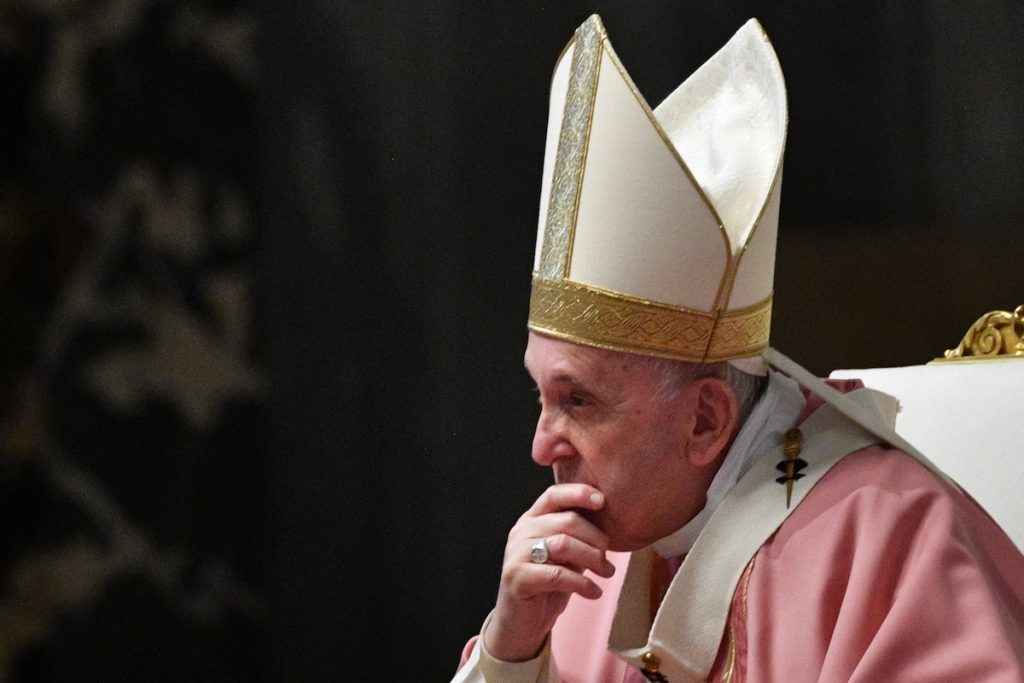The Catholic Church has reaffirmed that it cannot bless same sex unions while stating that its stance is not meant to be a form of unjust discrimination.
The Vatican made a public statement on the issue on March 15 in response to a ‘dubium’ (doctrinal question) asking if the Church has the power to bless same sex unions which is said it didn’t.
The response was followed by a lengthy explanatory note — translated into six languages — discussing its reasoning while firstly adding context to why the question was raised.
“In some ecclesial contexts, plans and proposals for blessings of unions of persons of the same sex are being advanced,” said the explanatory note from the Congregation for the Doctrine of the Faith.
“Such projects are not infrequently motivated by a sincere desire to welcome and accompany homosexual persons, to whom are proposed paths of growth in faith, ‘so that those who manifest a homosexual orientation can receive the assistance they need to understand and fully carry out God’s will in their lives’,” it said in its answer including a quote from Pope Francis’ Amoris Laetitia.
“On such paths, listening to the word of God, prayer, participation in ecclesial liturgical actions and the exercise of charity can play an important role in sustaining the commitment to read one’s own history and to adhere with freedom and responsibility to one’s baptismal call, because ‘God loves every person and the Church does the same’ , rejecting all unjust discrimination,” the note said in part next quoting a bishop synod document.
“[It] is not licit to impart a blessing on relationships, or partnerships, even stable, that involve sexual activity outside of marriage (i.e., outside the indissoluble union of a man and a woman open in itself to the transmission of life), as is the case of the unions between persons of the same sex. The presence in such relationships of positive elements, which are in themselves to be valued and appreciated, cannot justify these relationships and render them legitimate objects of an ecclesial blessing, since the positive elements exist within the context of a union not ordered to the Creator’s plan,” it said.
“Furthermore, since blessings on persons are in relationship with the sacraments, the blessing of homosexual unions cannot be considered licit. This is because they would constitute a certain imitation or analogue of the nuptial blessing invoked on the man and woman united in the sacrament of Matrimony, while in fact ‘there are absolutely no grounds for considering homosexual unions to be in any way similar or even remotely analogous to God’s plan for marriage and family’,” the note said with a quote further referencing Amoris laetitia.
“The declaration of the unlawfulness of blessings of unions between persons of the same sex is not therefore, and is not intended to be, a form of unjust discrimination, but rather a reminder of the truth of the liturgical rite and of the very nature of the sacramentals, as the Church understands them,” it said.
“The Christian community and its pastors are called to welcome with respect and sensitivity persons with homosexual inclinations and will know how to find the most appropriate ways, consistent with church teaching, to proclaim to them the Gospel in its fullness. At the same time, they should recognize the genuine nearness of the Church — which prays for them, accompanies them and shares their journey of Christian faith — and receive the teachings with sincere openness,” it said.


The note — signed by Spanish Jesuit Cardinal Luis Ladaria — was approved by the pope and comes at a time of conflicting views on the matter within the Church. In Germany at least two bishops, including Cardinal Reinhard Marx of Munich, one of the pope’s top advisers, have shown support for some kind of “pastoral” blessing.
A Pew Research survey last year showed that a majority of Catholics in the United States and Western Europe approved of gay marriage while a majority in Eastern Europe and former Soviet-bloc countries opposed it.
Churches in Africa and Asia also strongly oppose gay marriage. Conservatives have warned that debates on homosexuality have spawned debilitating divisions in other Christian Churches, such as the Anglican communion.
Last year, the Vatican had to move to clarify comments attributed to Pope Francis on civil union laws in a documentary, saying they were taken out of context and did not signal a change in Church doctrine on gay people or support for same-sex marriage.
The comments attributed to the pope in the film alarmed conservatives and they applauded the Vatican’s clarification.
Reporters later discovered that two separate quotes in response to separate questions were spliced to appear as one, deleting the intervening context and questions.
The Church teaches that being gay is not inherently sinful but forbids same-sex sexual activity.
To read the explanatory note in full click here.
With Reuters


